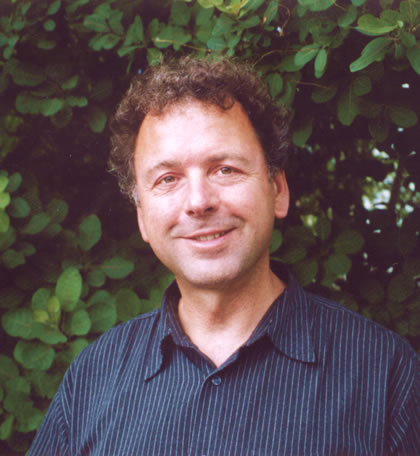First of all, - from 1990 until 1995 - the Netzkraft Movement was the name of a research project at the Institute of Systemic Research. We were looking for people with the ability, i.e. the willingness and energy, to commit themselves beyond their private and professional interests to act for the public welfare and who would have the effect of 'multiplicators' which means they would be able to pass on their ideas to others. By analysing indices, journals, internet data and other sources we encountered many people who - apart from their own objectives - also had the energy to work effectively for political and social aims such as various aid projects for people in need, a peaceful world policy, protection of the environment, equal rights for women, or anti-racism.
The Netzkraft Movement aims to support these committed people to make their work even more efficient. Their power lies not only in their courage to influence their personal environment but also in their strength and persistence to stand up for long-term objectives. Because they are clearly acting beyond their personal interests, they are able to convince others and win them over to work for their objectives. Usually they are free to work in a company or a party without having to make allowances for their career. Their specialization, their long-term commitment in a small field of action, however, are strength and weakness at the same time. It does make them recognized experts in their respective field of action and give their work a clear profile, but it also leads to a loss of energy in distinguishing themselves from others, and to a fragmentation of active persons and groups.
The Netzkraft Movement starts from the assumption that the urgent problems and threats to peace, the environment and human rights do not exist independently of each other, but are closely connected and frequently interdependent. Therefore, approaches to solutions must form a common integrated concept, even if the individuals or groups involved have to focus on individual issues. To overcome these problems we need to realize that the different forms of social or political commitment are equally important and are parts of a common objective. There are, therefore, good reasons for mutual support and uniting forces, in short: for networking.
The women's, peace and environmental movements in the West and the citizens initiatives in the East during the years 1960-90 have shown that even "ordinary people" are able to bring about changes as long as they agree on a common goal and stand up for it for a long time. Can they also combine their power to change the prevailing politics which are prevailing in matters affecting the survival of our globe? The Netzkraft Movement should find appropriate ways.
From 1990 until 1995, we analyzed literature, conducted interviews and sought advice in expert meetings, through correspondence and in personal discussions. We learned that networking is not an organizational problem: we need neither another umbrella association, nor a new organization. There are already enough good ones for all kinds of issues. Networking today is no longer a problem of the distribution of information either: all the information you could wish for is currently accessible through specialized magazines, newsletters, television or the internet; we are more likely to be in danger of 'drowning in ' or losing courage due to the excess of important information. After all, networking does not grow by an increasing number of demonstrations, happenings and appointments: 'committed multiplicators' are already working up to the limits of their capacity. What they need is rather a network to ease their burden and to support their work.
Most of the persons we interviewed agreed to participate in a network on two conditions, i.e. to communicate, to collaborate and maybe co-operate with other active people:
1. The network is decentralized and the participants are autonomous
Instead of creating a new organization or a central decision-making body, the participants in the network remain autonomous, they act as independently as they did before. They themselves decide spontaneously and, according to their particular requirements, when and to what extent they look for partners for exchange and possible cooperation through the network. The only thing they have to know is who the other net participants are.
2. The net participants have common objectives (basic consensus)
The network rests upon a basic consensus of active people, pursuing very different programmes and objectives in their respective work. Therefore, only overlapping basic demands are appropriate as ones on which to unite. But they have to be so concrete and binding that clear socio-political decisions are demanded. And they must have an effect going beyond the questions of everyday politics, which means they must have a long-term perspective. The basic consensus was developed with the objective of creating unifying common contents for the net participants.

